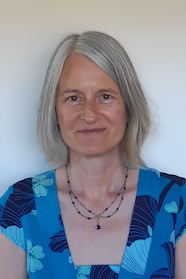
Dr Joanne Choi.
Dr Joanne Choi’s research will fill holes – in the market and in children’s teeth.
The Senior Lecturer in the Department of Oral Rehabilitation is one of seven University of Otago researchers to be awarded funding in the Health Research Council’s Feasibility Studies grants round announced this week.
Otago received a total of $1.74 million for projects ranging from anti-inflammatories and physiotherapy for people with knee osteoarthritis, preventing subsequent injuries and community-based intensive activation therapy for major depression.
Feasibility grants are intended for situations where there is already strong evidence to justify a full research project, but where critical practical information is needed first to make a potential full study feasible.
Dr Choi and her research team received $249,277 for their feasibility study as part of a project to develop a novel white crown for drill-free treatment for New Zealand’s most common chronic childhood disease – dental cavities.
Traditional treatment involves surgical removal of the infected dental tissue and restoration using a filling material. The Hall Technique is known as a no pain, no drill restorative procedure using metal preformed crowns.
“Although effective clinically, this technique has an aesthetic limitation – the crown is silver, rather than tooth coloured – and can be difficult for dental practitioners to use,” Dr Choi says.
“My research team has developed and validated a novel white shell crown system for the Hall Technique, improving both aesthetics and crown placement, while reducing treatment costs.”
The group is currently running a study to digitally scan children’s teeth to collect information on tooth size and shape and then in collaboration with the Southern District Health Board and a local plastic manufacturer will produce the crowns to be used in the HRC-funded clinical study.
“The study will determine the clinical effectiveness, acceptability and cost effectiveness of the novel white shell crowns. Data collected from the feasibility study will provide information that can be used to prepare for a multi-centre national clinical trial in the future,” she says.
Deputy Vice-Chancellor Research and Enterprise Professor Richard Blaikie says the grants will enable researchers to take the next step forward on projects that will improve the wellbeing of New Zealanders.
“These successful feasibility grants from researchers on all three of our main campus locations will lead to answers to important questions for New Zealanders’ health or the development of innovative medical technologies in the studies that will follow.
“We are very proud of the success of the teams supporting this research.”
Feasibility Study grants
 Associate Professor Anitra Carr, University of Otago, Christchurch
Associate Professor Anitra Carr, University of Otago, Christchurch
Can we attenuate inflammation in metabolic syndrome? A feasibility study
24 months, $249,999.59
Metabolic syndrome (MetS) is an increasingly prevalent condition that comprises a group of risk factors, including abdominal obesity, insulin resistance (pre-diabetes), hypertension and hyperlipidemia, which together significantly increase the risk of type-2 diabetes and cardiovascular disease (CVD). Chronic low-grade inflammation contributes to the insulin resistance and vascular dysfunction observed in MetS. Targeting these inflammatory pathways in MetS may help attenuate progression to the more severe cardiometabolic diseases. Vitamin C is a potent antioxidant with anti-inflammatory properties and is depleted in people with MetS. Therefore, we plan to carry out a study to assess the feasibility of a randomised controlled trial comprising vitamin C supplementation of people with MetS to determine effects on inflammation and other objective and subjective health measures. A diagnosis of MetS provides a window of opportunity to work with those diagnosed to make healthful lifestyle changes to potentially slow or even reverse progression to diabetes and/or CVD.
 Dr Cathy Chapple, University of Otago
Dr Cathy Chapple, University of Otago
Anti-inflammatories and physiotherapy for people with knee osteoarthritis
24 months, $243,976.34
Knee osteoarthritis (OA) is common and prevalence is increasing with ageing populations and rising levels of obesity. Thus, it is imperative to find effective treatment options for early management of people with knee OA, thereby decreasing pain and disability. Oral anti-inflammatory medication and physiotherapy are proven treatments for people with knee OA, but the effect of combining them is unknown. We will evaluate clinical and cost-effectiveness of adding anti-inflammatories to best practice physiotherapy, compared with physiotherapy alone in a randomised controlled trial (RCT). Prior to a fully powered RCT, we propose a feasibility trial to establish the acceptability and safety of the intervention and trial procedures, test participant recruitment and screening, and accurately estimate the cost of conducting the full RCT. Study findings will inform physiotherapists, pharmacists, doctors, and patients about the best way to use physiotherapy and anti-inflammatories for long-term management of knee OA.
 Dr Joanne Choi, University of Otago
Dr Joanne Choi, University of Otago
Novel white crowns for drill-free treatment of dental caries in NZ children
24 months, $249,277.96
Dental caries is the most common chronic childhood disease in New Zealand. Traditional treatment involves surgical removal of the infected dental tissues and restoration using a filling material. The Hall Technique (HT) is known as a ‘no-drill, no pain’ restorative procedure using metal preformed crowns (PFCs). Although effective clinically, this technique has an aesthetic limitation – the crown is silver rather than tooth-coloured. The metal PFCs also have other disadvantages: cost to healthcare providers is high and placement can be difficult. Our research team has successfully developed a novel white shell crown system for the Hall Technique, improving both aesthetics and crown placement, while reducing treatment costs. Tooth-coloured prototype crowns have been validated and we are preparing for a multi-centre national clinical trial. Therapeutic feasibility needs to be tested, to inform protocol development for the main clinical trial.
 Professor Marie Crowe, University of Otago, Christchurch
Professor Marie Crowe, University of Otago, Christchurch
Community-based Intensive Activation Therapy for Major Depression
24 months, $249,126.01
The New Zealand Government Inquiry into Mental Health and Addiction (He Ara Oranga) identified two important issues. First, a gap in mental health care provision, “the missing middle” of people with moderate to severe mental health difficulties whose needs are beyond the scope of primary health care services, but do not meet the threshold for specialist services. Second, mental health services provide treatment ‘through too narrow a lens’: people are offered medication, but not evidence-based psychological therapies to promote recovery. Many of the people in the “missing middle” are suffering from a major depressive episode. We have developed Intensive Activation Therapy (IAT) (Behavioral Activation and Cognitive Remediation) for people with moderate to severe depression in primary care with the aim of addressing functional impairment with short-term intensive therapy. This study aims to assess the feasibility of delivering a full study.
 Dr Helen Harcombe, University of Otago
Dr Helen Harcombe, University of Otago
Preventing subsequent injuries: A feasibility study
24 months, $249,995.79
Injuries are costly not only to those injured and their families but also to wider society. In 2018/19, the Accident Compensation Corporation (ACC, New Zealand’s no-fault injury insurer) spent $4.4 billion supporting injured people and received two million new injury claims. Concerningly, a substantial proportion of those injured experience subsequent injury events; 38% of an entitlement claims cohort had at least one subsequent ACC injury claim in the next twelve months. Preventing subsequent injuries, among people who have been injured, is an opportunity to reduce the overall injury burden. Our study will test the feasibility of an ‘injury liaison’ telephone intervention. The intervention has arisen from the findings of our previous quantitative and qualitative research and aims to support injured people e.g. to access services and complete their rehabilitation as appropriate. By optimising recovery pathways and reducing subsequent injuries, this project offers a currently untapped targeted injury prevention intervention opportunity.
 Dr Stephen Inns, University of Otago, Wellington
Dr Stephen Inns, University of Otago, Wellington
Combined colorectal cancer and H.pylori screening for 50-60 y/o Māori in NZ
24 months, $249,061.35
Stomach cancer and bowel cancer are equity issues that contribute to morbidity and mortality for Māori. Both cancers can be prevented using a simple and inexpensive stool test. A bacterium, H. pylori, is the main cause of stomach cancer. Māori have higher rates of stomach cancer, and much higher rates of H. pylori infection, than Europeans. H. pylori can be detected using a simple stool test. Stomach cancer can be prevented by treating H. pylori with antibiotics. The chance of dying of bowel cancer can be reduced by at least 16–22 percent using a screening stool test. However, participation of Māori in a national screening programme that uses the stool test is lower than for all ethnicities. The aim of this randomised controlled full study is to determine whether adding H. pylori screening to standard bowel screening affects screening participation. We will apply a co-designed, Kaupapa Māori-based combined screening methodology.
 Dr Ramakrishnan Mani, University of Otago
Dr Ramakrishnan Mani, University of Otago
Self-Regulation Training for people with knee osteoarthritis
24 months, $248,817.10
Knee osteoarthritis (OA) is a significant health condition, resulting in disability, reduced quality of life and high societal costs. OA pain is linked to heightened sensitivity of the sensory, cognitive, emotional functioning and pain modulatory areas of the brain. Targeting treatments to self-regulate brain areas related to pain experience in people with knee OA could be a feasible way to improve clinical outcomes. Self-regulatory interventions such as Mindfulness Meditation (MM) training and Neurofeedback (NF) training are effective in improving chronic pain outcomes. However, there is no evidence investigating the effectiveness, mechanisms and cost-effectiveness of these two self-regulation training methods in people with knee osteoarthritis. A feasibility trial will address factors that could influence the design of the full trial. The feasibility trial will evaluate feasibility, safety, acceptability and experiences of the interventions and determine the variability of the outcome measures to inform the sample size of the full clinical trial.
For further information, please contact:
Lea Jones
Communications Adviser, Media Engagement
University of Otago
Tel +64 3 479 4969
Mob +64 21 279 4969
Email lea.jones@otago.ac.nz
Find an Otago expert
Use our Media Expertise Database to find an Otago researcher for media comment.